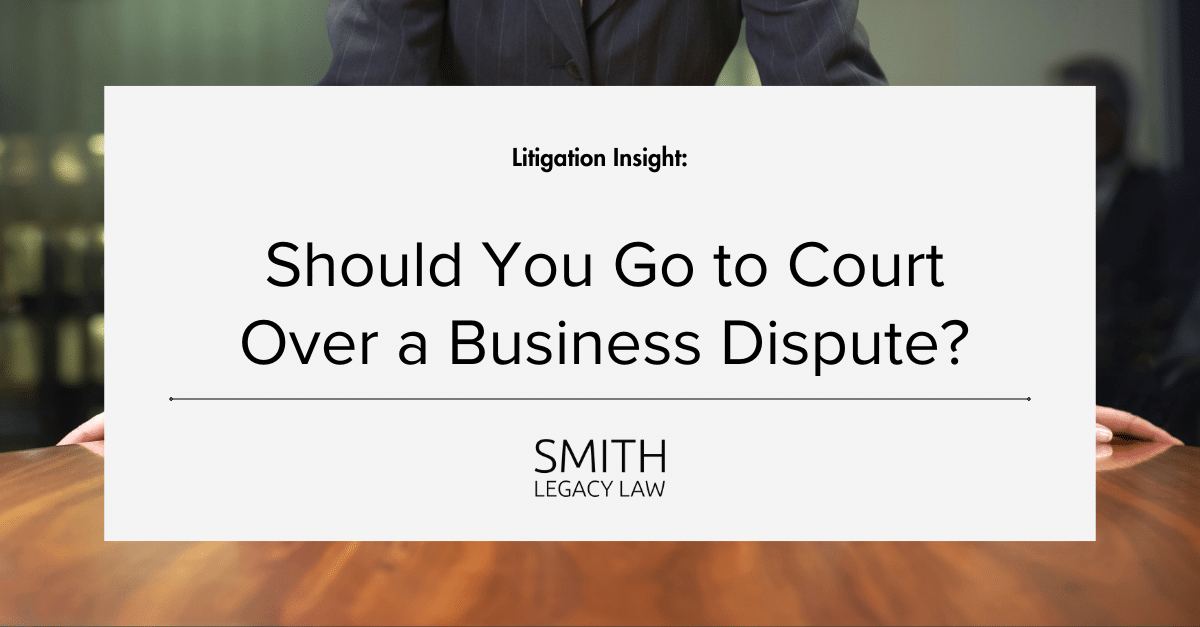For many small business owners, conflicts can get personal. No matter who allegedly injured the other, you may feel wronged and want to be vindicated regardless of the cost. However, litigation should always be the last resort. It is expensive and time-consuming and even if you win, you may still feel dissatisfied with the result. Litigation is also likely to ruin the relationship with the other party, which may not be the best for you or your business. Instead, it’s best to take a dispassionate view of the situation. Consider these issues when determining whether you should go to court over a business dispute:
What is your potential liability exposure?
If there is a lawsuit, how much would you owe if you lost? What would you spend to defend yourself? Settling out of court may be worth it if the amount you pay to the other side is less than your likely exposure.
How much would it cost to litigate?
Your cost must take into account legal fees and other litigation expenses, such as filing fees, paying expert witnesses, travel, etc. Further, the longer your case goes on, the more expensive it becomes. In business litigation, generally, there aren’t flat fee arrangements or contingency fees. Also, in most cases, you cannot recover your legal fees even if you win. You only get back your legal fees if a statute or a contract allows you to do so.
How much time will litigation take?
Some court cases can take years to resolve. During this period, you are not only paying legal expenses but you and others at your company are also devoting time to the matter – talking to attorneys, reviewing documents, answering questions, and traveling to depositions and court.
What are your odds of winning?
Your attorney should discuss with you your viable arguments and your likelihood of success. Sometimes, the law doesn’t recognize the validity of your position or it would be very costly to gather evidence to prove your case.
How do you feel about settlement?
What are your litigation priorities? All issues are not created equally. Are there certain matters you are willing to concede so you can focus on the ones most important to you? Would you be willing to settle at a particular dollar figure? Remember, you can settle at any point in the litigation and you don’t have to agree on everything for settlement to be helpful. Reducing the number of issues in a dispute can save significant time and money.
When thinking about the questions above, it is important to put your answers in writing and discuss them with an attorney. Often, emotions take over and we underestimate what can happen in litigation. The costs and benefits should be weighed as objectively as possible to ensure you are making your decision for the right reasons.
Importantly, you can also avoid litigation by utilizing an alternative dispute resolution (ADR) process instead. Mediation and arbitration are highly effective methods of ADR that rely on neutral third parties to help resolve disputes out of court. All your contracts should contain a provision for mandatory ADR. It can save considerable time and money.
Consulting a litigation attorney when a conflict occurs is the best strategy so you understand your rights and obligations. If you have a legal problem, contact us to discuss how we can help you achieve a positive outcome in your case.
